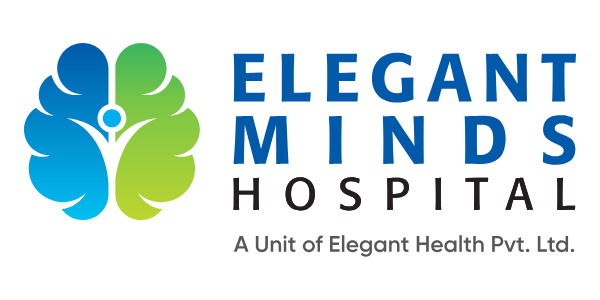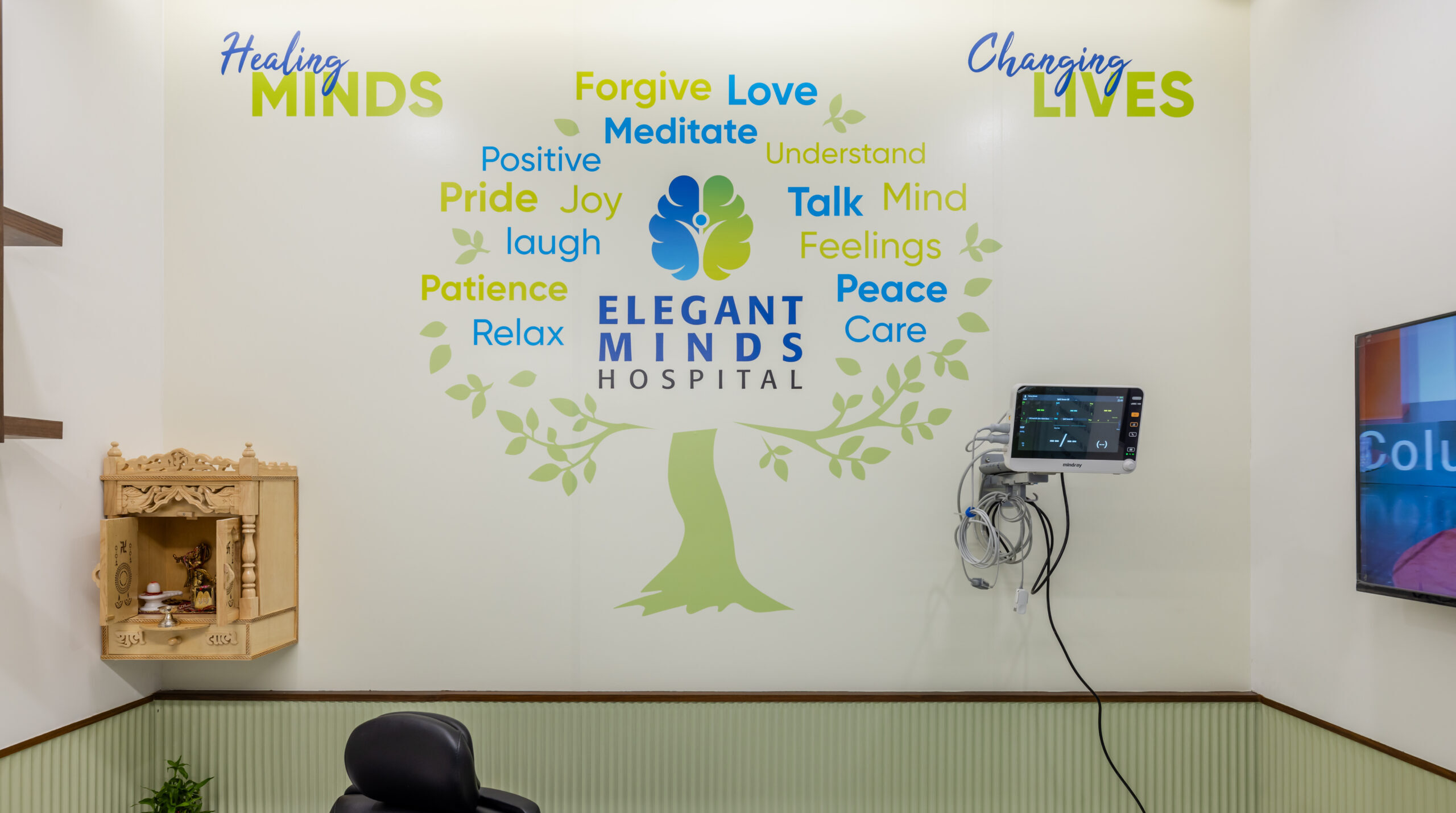- Depressive Disorder
- Anxiety & Panic Disorders
- De-addiction
- Obsessive Compulsive Disorder (OCD)
- Schizophrenia and Other Psychotic Disorders
- Bipolar Disorders
- Sleep Disorders
- Eating Disorders
- Sexual Disorders
- Personality Disorders
- Dementia and Other Major Neuro-cognitive Disturbances
- ECT
- Psychological Testing
- Inpatient Services
- Depressive Disorder
- Anxiety & Panic Disorders
- De-addiction
- Obsessive Compulsive Disorder (OCD)
- Schizophrenia and Other Psychotic Disorders
- Bipolar Disorders
- Sleep Disorders
- Eating Disorders
- Sexual Disorders
- Personality Disorders
- Dementia and Other Major Neuro-cognitive Disturbances
- ECT
- Psychological Testing
- Inpatient Services
Depressive Disorder
-
Depressive Disorder, commonly known as depression, is a prevalent mental health condition characterized by persistent feelings of sadness, hopelessness, and emotional distress, along with a loss of interest or pleasure in activities that were once enjoyable. It affects individuals across all age groups and can vary in severity from mild to severe.
Depressive disorder influences how a person feels, thinks, and functions in daily life. It often impacts sleep patterns, appetite, energy levels, concentration, productivity, and overall quality of life. Individuals may find it difficult to carry out routine tasks such as working, studying, or maintaining social relationships.
Although depression can feel overwhelming, it is a treatable condition. With early diagnosis, appropriate psychiatric care, psychotherapy, and supportive interventions, individuals can experience significant improvement and recovery.
Anxiety & Panic Disorders
-
Anxiety disorders are common mental health conditions characterized by excessive worry, fear, or persistent unease, often related to everyday situations. When anxiety becomes intense, frequent, or overwhelming, it can interfere with a person’s ability to function normally in daily life.
Common symptoms include restlessness, irritability, difficulty concentrating, and ongoing feelings of tension. Anxiety often presents with physical symptoms such as a rapid heartbeat, shortness of breath, sweating, trembling, dizziness, or chest discomfort. In panic disorder, individuals may experience sudden and intense panic attacks, marked by overwhelming fear and severe physical sensations that can feel frightening and unexpected.
Anxiety and panic disorders can affect sleep, work, relationships, and overall quality of life, but they are highly treatable. Treatment may include psychotherapy, medication, stress-management techniques, lifestyle modifications, and relaxation strategies, tailored to each individual’s needs.
De-addiction
-
Substance addiction is a chronic and complex mental health disorder marked by the compulsive use of alcohol or drugs despite harmful physical, psychological, and social consequences. Addiction alters brain functioning, leading to tolerance, intense cravings, and withdrawal symptoms, making it difficult for individuals to stop without professional help.
Substance use disorders can severely disrupt daily life, relationships, work performance, and overall health. Without timely intervention, addiction often progresses, increasing the risk of medical complications, mental health disorders, and relapse.
Studies indicate that nearly three out of four individuals with substance dependence do not receive adequate treatment, highlighting a critical gap in access to effective de-addiction and rehabilitation services. This underscores the urgent need for structured, evidence-based, and compassionate care.
Obsessive Compulsive Disorder (OCD)
-
Obsessive-Compulsive Disorder (OCD) is a mental health condition characterized by unwanted, intrusive, and recurring thoughts, urges, or images (obsessions), along with repetitive behaviors or mental acts (compulsions) performed to reduce anxiety or distress. Although individuals with OCD often recognize that these thoughts and behaviors are excessive or irrational, they may feel powerless to stop them.
Common obsessions include fears related to contamination, harm, symmetry, or unwanted thoughts, while compulsions may involve excessive cleaning, checking, counting, or repeating actions. OCD can significantly interfere with daily functioning, work or academic performance, relationships, and overall quality of life.
OCD is a treatable condition. Effective management often includes psychotherapy—especially Cognitive Behavioral Therapy (CBT) with Exposure and Response Prevention (ERP)—along with medication when required. Early diagnosis and consistent treatment can greatly reduce symptoms and improve functioning.
Schizophrenia and Other Psychotic Disorders
-
Schizophrenia is a serious and chronic mental health condition that affects how a person thinks, feels, and behaves, often altering their perception of reality. Individuals with schizophrenia may experience hallucinations (such as hearing voices or seeing things that are not real), delusions (strong false beliefs), disorganized thinking, and changes in emotional expression or behavior.
These symptoms can make it difficult to distinguish what is real from what is not, significantly impacting daily functioning, relationships, work, and social life. Other psychotic disorders may present with similar symptoms, including brief psychotic disorder, schizoaffective disorder, or psychosis related to mood disorders or substance use.
Although psychotic disorders can be challenging, they are treatable. With timely diagnosis, psychiatric medication, psychotherapy, psychosocial rehabilitation, and long-term support, many individuals are able to manage symptoms effectively and lead meaningful, productive lives.
Bipolar Disorders
-
Bipolar disorder is a mental health condition characterized by significant and recurring mood changes, ranging from periods of elevated or irritable mood, high energy, and increased activity (mania or hypomania) to episodes of deep sadness, low energy, and depression. These mood shifts can occur suddenly or gradually and may vary in intensity.
During manic episodes, individuals may feel unusually energetic, overly confident, talkative, or restless, and may engage in impulsive or risky behaviors. Depressive episodes can lead to feelings of hopelessness, fatigue, difficulty concentrating, changes in sleep and appetite, and loss of interest in daily activities. These fluctuations can significantly affect thinking, behavior, relationships, work performance, and overall quality of life.
Bipolar disorders are treatable conditions. With accurate diagnosis and a combination of medication, psychotherapy, lifestyle management, and long-term follow-up, individuals can effectively manage symptoms, reduce relapse, and lead stable, productive lives.
Sleep Disorders
-
Sleep disorders are conditions that affect the quality, timing, or duration of sleep, making it difficult to get adequate rest on a regular basis. Poor sleep can significantly impact physical health, mental well-being, mood, concentration, and daily functioning.
Common sleep disorders include insomnia (difficulty falling asleep or staying asleep), sleep apnea (repeated breathing interruptions during sleep), and restless legs syndrome (an uncontrollable urge to move the legs, especially at night). Other conditions may include circadian rhythm disorders, parasomnias, and hypersomnia.
Untreated sleep disorders often lead to daytime fatigue, irritability, reduced productivity, impaired concentration, and increased risk of mental health issues such as anxiety and depression. However, sleep disorders are treatable with proper evaluation and care.
Eating Disorders
-
Eating disorders are serious mental health conditions characterized by unhealthy eating behaviors and distorted attitudes toward food, weight, and body image. They can affect individuals of all ages and genders and may have significant physical, emotional, and psychological consequences.
Common eating disorders include anorexia nervosa (severe restriction of food intake and intense fear of weight gain), bulimia nervosa (recurrent episodes of binge eating followed by purging behaviors such as vomiting or excessive exercise), and binge eating disorder (frequent consumption of large amounts of food with a sense of loss of control).
If left untreated, eating disorders can lead to nutritional deficiencies, hormonal imbalances, heart problems, gastrointestinal issues, and emotional distress. However, recovery is possible with timely and comprehensive care.
Treatment typically involves a multidisciplinary approach, including psychotherapy, nutritional counseling, medical monitoring, and family support, tailored to the individual’s needs.
Sexual Disorders
-
Sexual disorders are conditions that affect a person’s ability to engage in or enjoy sexual activity, impacting both physical function and emotional well-being. These concerns are common and can affect individuals of all genders and age groups.
Common sexual disorders include erectile dysfunction, premature ejaculation, delayed ejaculation, low sexual desire, and painful intercourse. Such conditions may arise due to psychological factors like stress, anxiety, depression, relationship issues, or medical and hormonal causes.
Sexual disorders can significantly influence self-esteem, intimate relationships, and overall quality of life. However, they are treatable with appropriate care. Treatment may involve psychotherapy, couple or sex therapy, medication management, lifestyle modifications, and treatment of underlying medical conditions.
Personality Disorders
-
Personality disorders are mental health conditions that affect the way a person thinks, feels, perceives, and behaves, often resulting in long-standing and inflexible patterns that differ significantly from cultural expectations. These patterns can create challenges in relationships, work, emotional regulation, and daily functioning.
Individuals with personality disorders may experience difficulty managing emotions, maintaining stable relationships, adapting to change, or understanding the impact of their behavior on others. These difficulties are typically persistent and may cause distress to both the individual and those around them.
Although personality disorders can be complex, they are treatable. Management commonly involves psychotherapy, such as cognitive-behavioral therapy (CBT), dialectical behavior therapy (DBT), or other structured therapeutic approaches. Treatment focuses on helping individuals develop healthier coping strategies, improve interpersonal skills, enhance emotional regulation, and achieve better quality of life.
Dementia and Other Major Neuro-cognitive Disturbances
-
Dementia is a group of brain-related conditions that cause a progressive decline in memory, thinking, reasoning, and understanding. It commonly affects older adults but is not a normal part of aging. Dementia can interfere with a person’s ability to perform everyday activities, make decisions, communicate effectively, and live independently.
Individuals with dementia may experience memory loss, confusion, difficulty concentrating, disorientation, language problems, and changes in mood, personality, or behavior. Other major neurocognitive disorders may present with similar symptoms and can arise due to conditions such as Alzheimer’s disease, vascular disease, infections, head injury, or other neurological illnesses.
Although dementia is often a progressive condition, early diagnosis and appropriate management can help slow symptom progression, reduce distress, and improve quality of life for both patients and caregivers. Treatment may include medication, cognitive therapies, behavioral interventions, and caregiver support.
ECT
Electroconvulsive Therapy (ECT) is a medical treatment for severe mental health conditions that have not responded adequately to medications or psychotherapy. It involves the controlled application of electrical currents to the brain under anesthesia, which can rapidly improve symptoms in certain psychiatric disorders.
ECT is commonly used for conditions such as severe depression, treatment-resistant bipolar disorder, catatonia, and certain types of psychosis. It is considered a safe and effective procedure when performed under strict medical supervision, with careful monitoring before, during, and after treatment.
Many patients experience significant relief from debilitating symptoms, improved mood, and better daily functioning following a course of ECT. Side effects are typically short-term, such as temporary memory disturbances or mild confusion, and are closely managed by the healthcare team.
At Elegant Minds Hospital, our experienced psychiatrists and trained medical staff provide ECT in a safe, comfortable, and supportive environment, ensuring that each patient receives personalized care and optimal therapeutic outcomes.
Psychological testing and counselling:
- Personality Assessment
- Rorschach
- Thematic Apperception Test (TAT)
- Psychological evaluation for various mental health conditions


